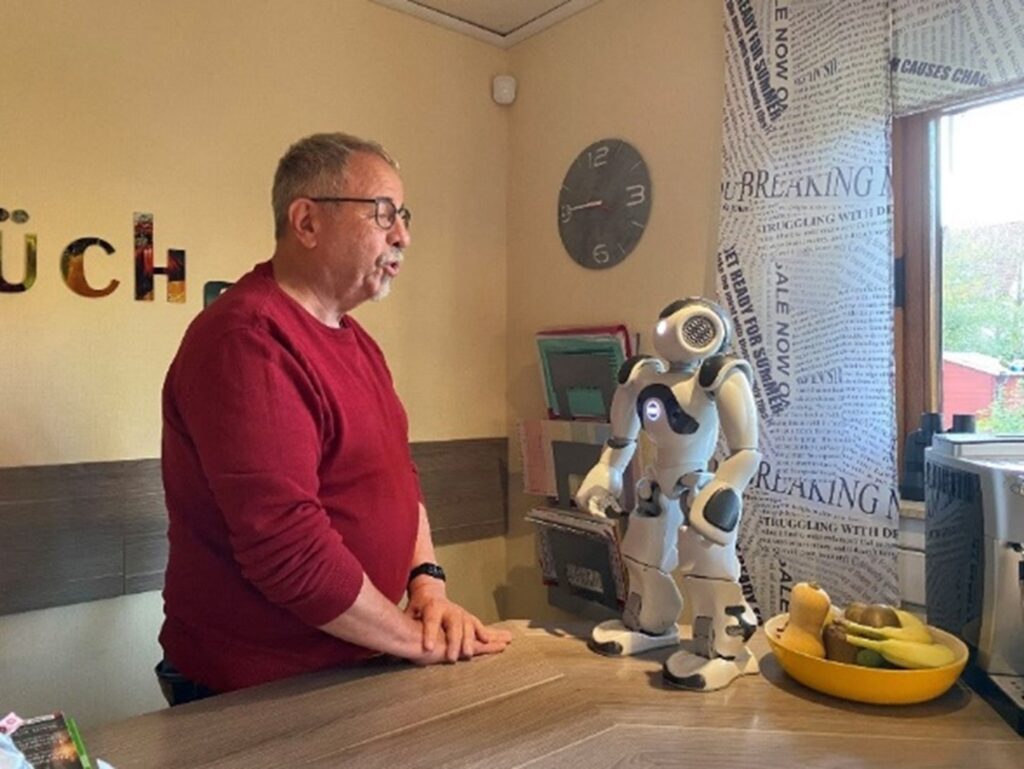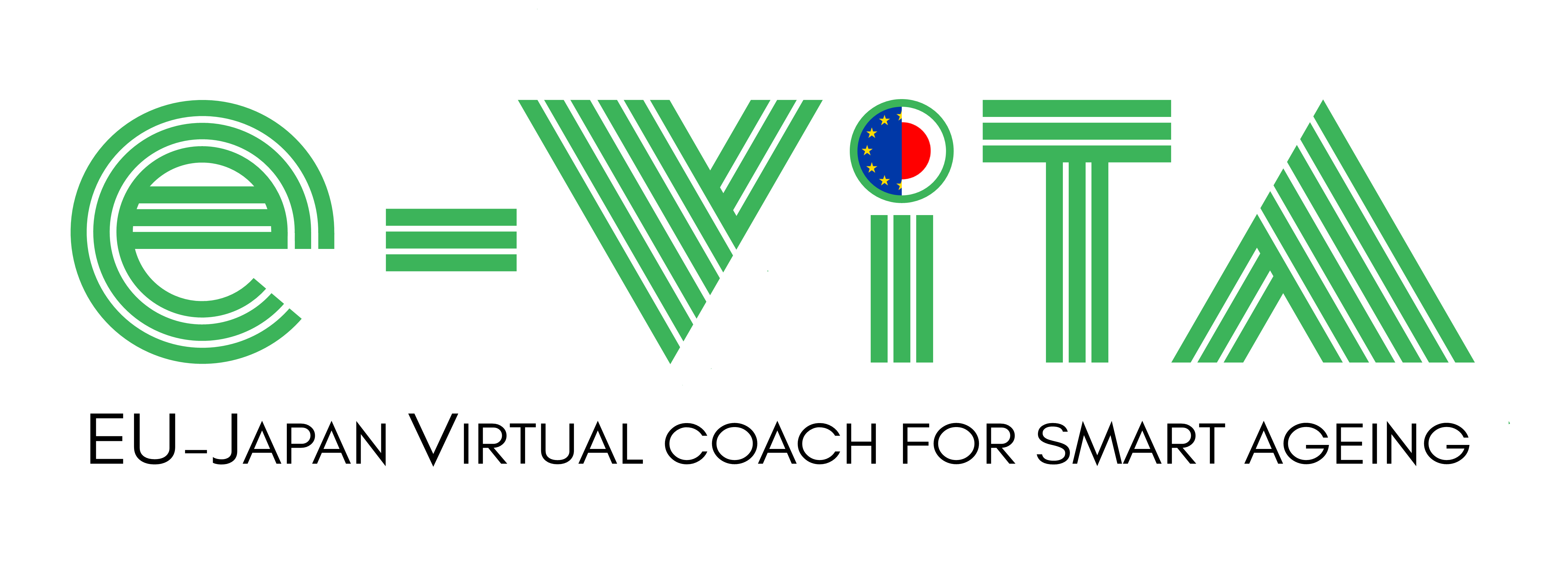Preliminary results on the 2nd wave of experiments with the Proof-of-concept study in Europe and Japan

Between July and December 2023, the 2nd wave of experiments of e-VITA unfolded across locations in Japan – including Sendai, Natori, and Tokyo – and in Europe – Cologne, Paris, and Ancona. The primary objective of this milestone of the project was twofold: firstly, to underscore the efficacy of employing virtual coaches in enhancing the quality of life, and secondly, to gauge user engagement with the Virtual Coach System through metrics such as usage frequency and dropout rates.
A cohort of 140 older individuals was randomly divided into two groups: the experimental group, which used the virtual coach, and the control group, which relied on traditional informational brochures. Preceding, during, and subsequent to the implementation phase, participants underwent interviews, observations, and questionnaire sessions to capture their experiences and perceptions.
Additionally, at each pilot site, the presence of ‘human coaches’ was notable. These individuals served as direct liaisons for participants in the experimental group, offering comprehensive guidance on the functionalities of E-VITA devices, facilitating hands-on experiences, addressing queries, and providing assistance during any operational challenges encountered.
The pilots in a nutshell:
- Japan
In Japan, our project centred around three key locations: Natori, Sendai, and Tokyo and involved 72 older participants. Human coaches played a central role in ensuring the success of the initiative, demonstrating unwavering dedication and organization.
These coaches conducted biweekly report meetings, facilitating open communication and progress tracking. Additionally, they organized digital training sessions to equip participants with the necessary skills and knowledge to utilize the technology effectively. Moreover, the human coaches arranged meetings with city welfare authorities and health-related seminars, covering a range of topics including oral health, nutrition, bone health, and skin health.
- Italy
In Ancona, IRNCA began with the recruitment of end-users at the end of July, with a target of 32 participants each allocated to the Experimental Group and the Control Group. Training sessions were conducted, consisting of both group sessions and individual sessions tailored to the needs of the participants.
The roll-out phase commenced in July/August, with the Experimental Group receiving a suite of technological tools including 5 NAO robots, 5 Gatebox units, 9 Tablets/smartphones (including 4 with NeU), and 1 Celeste.
Throughout the project, human coaches played a crucial role, providing regular consultations to test subjects via telephone or in-person meetings based on their needs. Additionally, social group activities were organized, fostering interaction and collaboration among participants.
- France
During the project’s outset, in Paris, 10 older adults expressed their hopes and expectations, including a desire to learn new things, connect with others, contribute to their community, and overcome daily challenges while enjoying themselves. For them, quality of life is the equivalent of being in good health, maintaining strong relationships, personal growth, enjoying activities, expanding knowledge, and achieving inner peace.
As December drew to a close, participants reflected on their experiences with the social robots, noting their suitability for combating isolation but acknowledging the need for good cognitive function and patient to operate them effectively. They praised the usefulness and availability of human coaches at the project’s onset.
Benefits reported by participants included a reduction in isolation, community building, enjoyment of activities in the e-VITA program, increased social interactions facilitated by the robots, and improved cognitive and physical health after participating in the coaching program. Notably, participants felt no sense of stigmatization or loss of privacy regarding data protection.
- Germany
The e-VITA Project Partner Caritas Cologne began the comprehensive end-user training sessions in Siegen in late July, where small groups of test subjects were introduced to the functionalities of various assistive devices. Following the training phase, the roll-out commenced in early August, with the Experimental Group (11 participants) embracing cutting-edge technology including NAO robots, Gatebox units, and Tablets.
Integral to the project’s success was again the ongoing support provided by human coaches, who engaged in regular consultations with the test subjects via telephone, Zoom, email, or Telegram. Midway through the project, online focus groups offered participants a platform to share their experiences and insights.
As November drew to a close, final measurements were taken to assess the impact and effectiveness of the interventions. The project culminated in a final event in December, where participants and stakeholders gathered to reflect on the journey taken.
Until March 2024, our incredible researchers are analysing all the data collected and will produce a final report that will be released in e-VITA website and presented in the final conference. Do not miss it!













